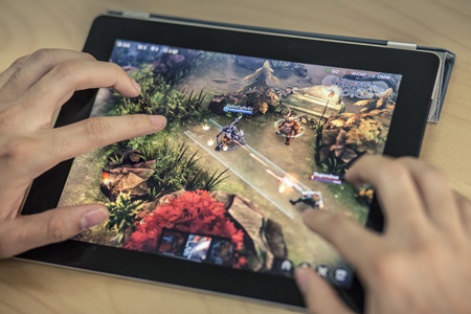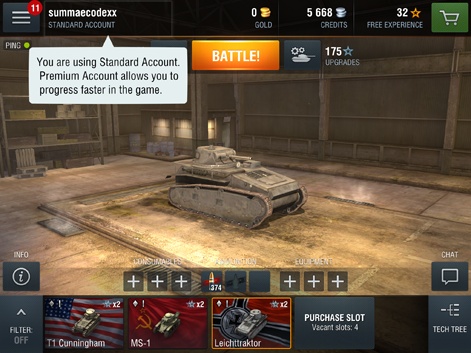Recently, Blake Jorgensen, EA's CFO, made comments that tablets could catch up to consoles by the end of the decade.
Moore's Law suggest that he's on the right track.
Mobile hardware is advancing quickly. We're seeing games from the previous console generation running on mobile, Apple's Metal technology is making iOS games look better and better, and there's just no reason to think the tech won't get to a point where the games on mobile *can* look as good as they do on consoles and PC.
He also suggest that new "console-style games" might start to make it to mobile as well.
Now here's where I have a problem.
Why will anyone want to make these games when core games have a limited place on mobile - and EA is a key reason?
There's a cultural reason why mobile games' successes are what they are - and it's because big-name publishers have created and maintain the culture of 'real gaming' being paid games on console and PC, with free-to-play being part of 'lesser' platforms like mobile.
Hierarchy of needs
The idea of less-powerful systems being seen as less-worthy has persisted throughout the last decade.
Mobile gaming has always been seen as lesser in some form, due to the less powerful hardware, but also due to controls that are worse for core gaming.

There's a set hierarchy: Mobile gaming is looked down upon by handheld gaming, handheld gaming is seen as lesser than console gaming, and console peasants are looked down upon by the glorious PC gaming master race.
This attitude even works within sub-sectors. Even fans of more traditional mobile games look down on the casual gamers who have made free-to-play so popular. Who knows, maybe if a watch gaming segment pops up, the Candy Crush fans will likely gripe about how lightweight those games are.
This entwined competitiveness and defensiveness - not among everybody, but a vocal enough population - is part of the cultural issue with will react against bringing bigger and better games to mobile.
There needs to be an attitudinal shift that free-to-play doesn't have to be a manipulative cash-grab.
Everyone wants to defend their territory. Right now, console and PC gaming is overwhelmingly seen as something where the lack of tactile controls and the abundance of free-to-play is reason to disregard mobile gaming.
Waiting is no strategy
The problem for companies who want to take advantage of the situation predicted by Jorgensen is there are two possibilities for how things could change.
One is to wait until the culture shifts and then strike then, but that could be decades.
It could be all the kids who grew up on Minecraft Pocket Edition suddenly start having a lot more disposable income as they get jobs and find that they enjoy the convenience of playing on phones and tablets, and don't really care about physical controls vs. virtual controls because they grew up with non-tactile controls.
And they'll spend money on the games that they want to play.
But, expecting kids to grow up and get disposable income is a terrible business strategy if you're trying to stay relevant and profitable now. You have to get the people with disposable income right now to spend it on your game.
And that's why what I think is going to have to happen is that in order to get core gaming working on mobile from a business standpoint - by which I mean free-to-play - the last vestiges of free-to-play being seen as a lesser type of game on console and PC needs to be overcome.
Change is coming
There are signs of this happening. Games like League of Legends, Dota 2 and World of Tanks show that a dedicated PC crowd will accept free-to-play.
And as always, the most negative detractors of the business model may just be a vocal minority, as the business model, if done right, keeps working.

After all, people like free stuff. It just needs to spread to more games, so that mobile free-to-play is seen as an equal of paid, and accepted by people who might have rejected it previously.
Still there are barriers. Currently, free-to-play on mobile is overwhelmingly casual-friendly - MOBAs don't make money, New FPS Midnight Star isn't looking too hot in terms of financial success, and the best core games have been Injustice, a card game wrapped around a simplified set of fighting game mechanics, and EA's FIFA and Madden games, which focus on the Ultimate Team functionality to make money off of football's immense popularity, both association and American.
Do It Yourself EA
Hence, I can't help but think it's going to take companies like EA making an aggressive push to bring free-to-play to console that will be required to make bigger games work on tablet.
In this context, 2K's Evolve, a new IP driven by multiplayer and offering loads of DLC options, may be seen in the future as a missed opportunity for the big players in core gaming to tackle free-to-play in a significant way.
Instead, there needs to be an attitudinal shift among both players and creators that free-to-play doesn't have to be a manipulative cash-grab. And it'll take EA, Take-Two, Activision, and the like to start making their free-to-play games on console and PC the flagships of their portfolio instead of chasing the decline of paid games.
So, if Blake Jorgensen's predictions are going to come true, his company needs to be part of the change.





















